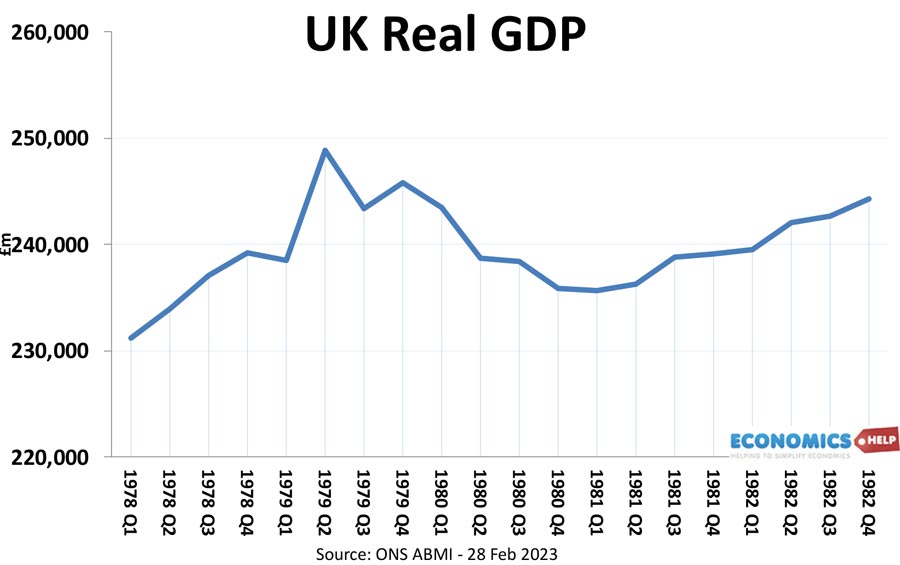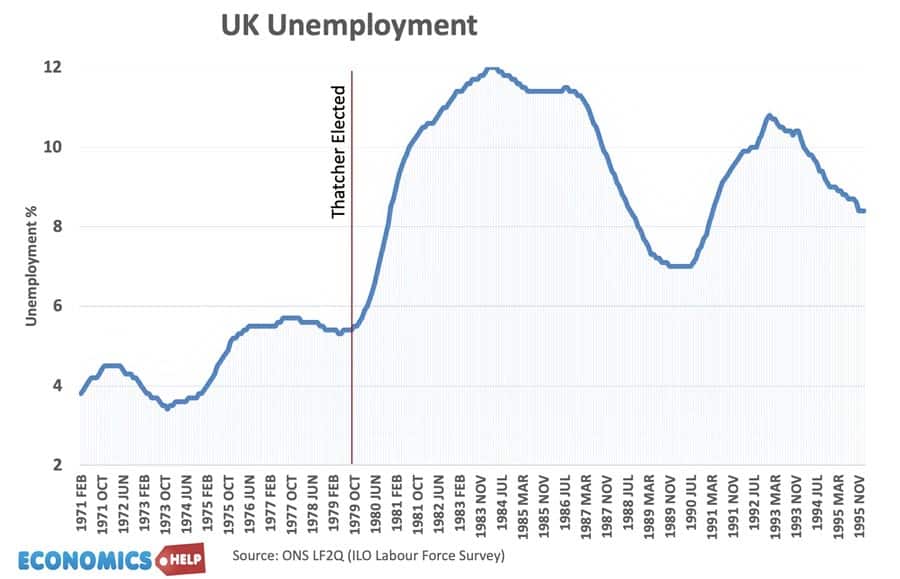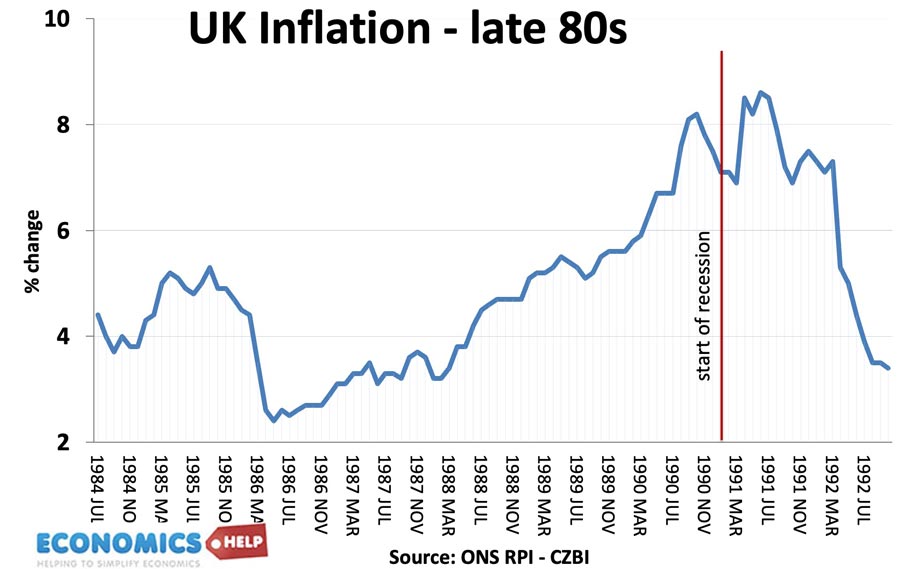Some of the main economic criticisms of Thatcher’s economic policies
Unnecessarily deep recession in 1981

Margaret Thatcher came to power in 1979 inheriting an economy with high inflation. She introduced strict Monetarist policies such as high interest rates and high taxes to try and control the money supply. This reduced inflation but at the expense of causing a deep recession in 1981. The recession particularly affected the manufacturing sector and unemployment rose to 3 million.

Inflation was brought under control, but some economists argue that the recession was deeper and more prolonged than was necessary. In particular, the monetarist experiment was criticised because the link between the money supply and inflation was much weaker than anticipated.
Boom and Bust under Mrs Thatcher

Mrs Thatcher and her chancellor Nigel Lawson oversaw an economic boom in the late 1980s. Growth reached over 5%, house prices boomed and unemployment fell. However, this growth was too fast and it caused inflation and the growth was unsustainable.
This unsustainable boom led to the recession of 1991 – exacerbated by the decision to join the ERM
Criticisms of Thatcherite Economics
Also there is a more general criticism of Thatcherite economics. The belief in free markets and individual wealth creation undermined the fabric of society encouraging selfishness and an increase in inequality. Thatcherite beliefs include a support for a form of ‘trickle down economics‘ The idea if the rich get richer everyone benefits. But, this is often not the case.
Related
- Economic Impact of Mrs Thatcher
- Economic Policy of Thatcher
- Mistakes of Mrs Thatcher and Nigel Lawson
- Poll Tax
